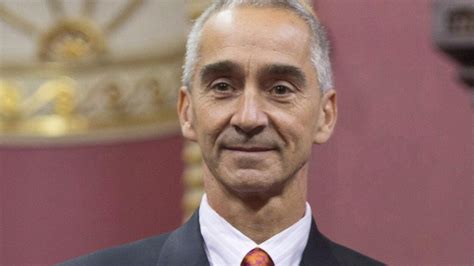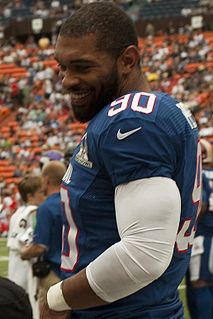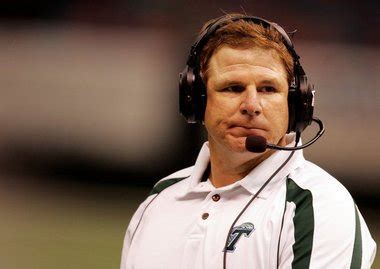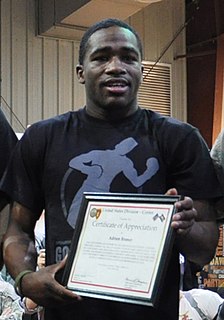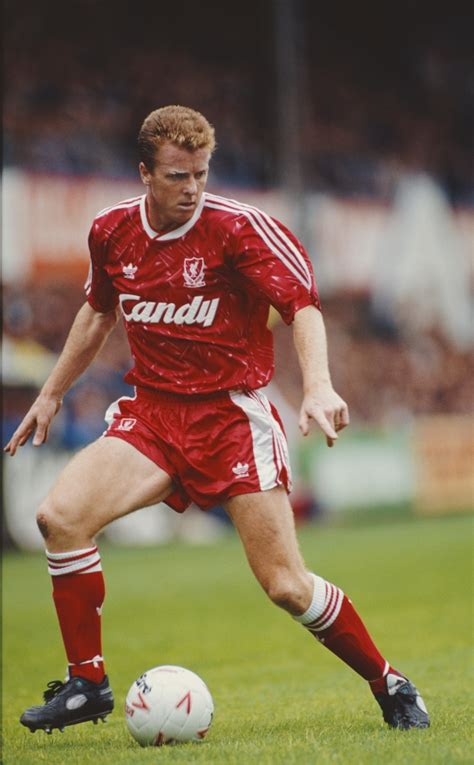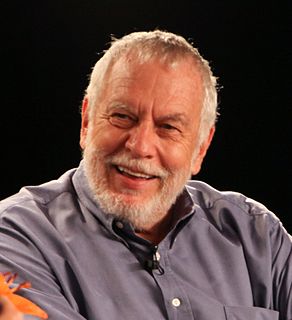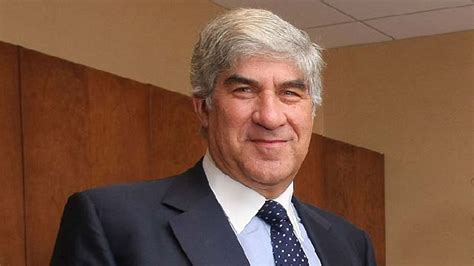A Quote by Brad Pitt
I've always believed happiness is overrated, you know? It’s those difficult times that inform the next wonderful time, and it’s a series of trade-offs, of events, of wins and losses.
Related Quotes
We call the fates of the Titanic and the Concordia - as well as those of the space shuttles Challenger and Columbia - 'accidents.' Foreseeing such undesirable events is what engineers are expected to do. However, design trade-offs leave technological systems open to failings once predicted, but later forgotten.
A song playing comprises a very specific and vivid set of memory cues. Because the multiple-trace memory models assume that context is encoded along with memory traces, the music that you have listened to at various times of your life is cross-coded with the events of those times. That is, the music is linked to events of the time, and those events are linked to the music.
There's times when you're by yourself and you want your girl around or your kids around. You just need somebody around. And other times, boxing makes you feel like you want to be by yourself. You get emotional. That's why after some wins, I cry. Even in my losses, I cry. Because I know how hard I work, and I always want to be victorious.
We always seem to be surprised by events, especially by catastrophes, but also by wonderful events. Look at 1990, the year that the Soviet Union collapsed and apartheid in South Africa collapsed and the Berlin Wall came down. I don't know anyone who foresaw those events. It seems to me that as a species we are constantly trying to adapt ourselves to the unexpected. In the meantime, we talk as if we are in control, and we're not. This seems to me to be the truth about the twentieth century.
My experience with novice traders is that they trade three to five times too big. They are taking 5 to 10 percent risks on a trade when they should be taking 1 to 2 percent risks. The emotional burden of trading is substantial; on any given day, I could lose millions of dollars. If you personalize these losses, you can’t trade.

